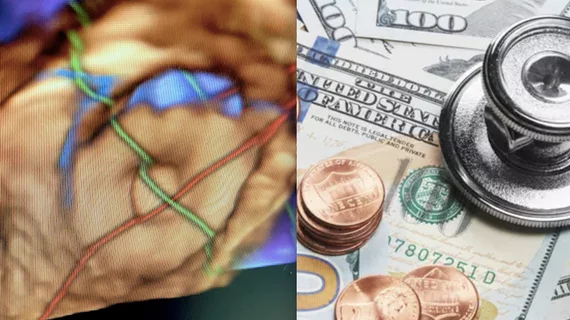The Society for Cardiovascular Angiography and Interventions (SCAI), American College of Cardiology (ACC) and Heart Rhythm Society (HRS) have asked the U.S. Centers for Medicare and Medicaid Services (CMS) to clarify a key detail related to the national coverage determination (NCD) for percutaneous left atrial appendage closure (LAAC).
According to the LAAC NCD, “a formal shared decision-making interaction with an independent non-interventional physician using an evidence-based decision tool on oral anticoagulation in patients with non-valvular atrial fibrillation prior to LAAC” is required. However, the three groups noted, there is now some confusion regarding what, exactly, is meant by “an independent non-interventional physician.”
The SCAI, ACC and HRS have always believed this refers to “a separate physician (interventional cardiologist or electrophysiologist) that is not implanting the device.” However, Medicare administrative contractors (MACs) have started issuing denials and saying the interaction cannot be done with any interventional cardiologist or electrophysiologist, even if they are not the physician performing the procedure.
“As interventional cardiologists and electrophysiologists often provide general cardiovascular care for patients with atrial fibrillation, a non-implanting interventional cardiologist or electrophysiologist should be allowed to perform the shared decision-making as intended,” the groups wrote in a letter to CMS. “In fact, based on their experience with catheter-based procedures, interventional cardiologists and electrophysiologists probably provide more insightful advice for the shared decision-making process.”
In addition to asking CMS to clarify this detail, the groups also asked that the agency to “provide education to the MACs” to ensure there is more clarity going forward.
The full letter to CMS can be read here. It is signed by HRS President Jodie L. Hurwitz, MD; ACC President B. Hadley Wilson, MD; and SCAI President George D. Dangas, MD, PhD.

